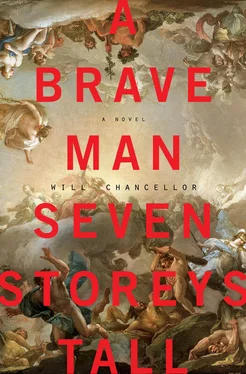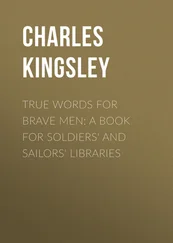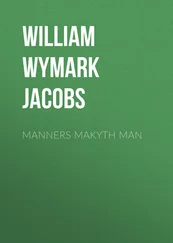Owen couldn’t brook condescension even when he didn’t know the answer. He was silent, snarling in the way that only a ten-year-old can snarl.
— Are you using the peridot as a metaphor for your feelings?
— No.
— Would you say you are perturbed during these peridot days?
— No. Everything falls into place. It settles. I’m not perturbed.
— Is today one of the peridot days?
— Yes.
— Does this remit? I mean, do you ever have days or parts of days that are not peridot?
— There are other colors too. But once the color starts, it stays that way for a few days.
— What stays that way?
— Everything shifts slightly.
— Do you want to draw this for me? I have several green markers. I’m not sure if peridot is in there. But you can probably make do.
Owen couldn’t hide his reaction to the therapist’s condescension. He might only be ten, but he knew what remit meant, and he didn’t want to draw.
— I’m going to wait out front for my dad.
— It’s that I’m treating you like a child, isn’t it? I invite all my patients to draw, to play, to explore. Your Hermes is fascinating. Let’s follow him and see where he goes.
Owen went out the front door and waited in the sun.
Professor Burr revealed to Owen several years later that this first therapist considered Owen actively psychotic and wrote out a prescription for chlorpromazine. He thought Owen was in severe danger of becoming “stuck there,” and advised a medicated future in order to manage these delusions.
That single experience was enough psychiatry for the Burrs. Mission School District, however, insisted that Owen continue to seek professional help. They recommended a psychologist of mixed lineage who was loosely Adlerian. He had succeeded with several troubled children. Because the phrase troubled child had enough potency to pluck a talented athlete from the Olympic Development Program, Owen agreed to a full year of sessions.
The first three months were a standoff. The therapist didn’t hide the fact that he viewed religiosity — any religiosity, much less idiopathic religiosity — as neurosis. He told Owen that Hermes, a name appearing over and over in the previous analyst’s patient notes, was certainly an attempt to rationalize the absence of his mother — which certainly wasn’t his fault.
Every session was the same: “Talk to me about your mother. Do you feel her death was in any way your fault? What do you associate with mothers? What do you associate with women? Do you know what labor is?” Throughout therapy, Owen refused to say a word.
On the day he knew would be his last session, as a Parthian shot, Owen told the therapist about the gamboge days, the days of Apollo. How time slowed, nearly stopped, and allowed him to realize his visions. How the color pulled ideas together in a thick resinous current. How he shot far ahead and found the mark.
The Adlerian refused to let go of the idea that Owen was being metaphorical. The therapist wouldn’t even go so far as to call gamboge a mistaken belief. Owen couldn’t get into his story without the therapist insisting that they talk about his relationship to his mother and father. That conversation wasn’t going to happen. After ten minutes of Owen refusing to answer direct questions, the therapist offered an astute analysis of the impasse.
— I ask you about your parents and you stonewall me. Instead you talk about gods as if they’re real. Maybe you’re putting me on. Either way, it’s not a problem. I think you’re a really interesting young man, Owen. What you need, and what I’m going to tell your father that you need, is a good Jungian.
They never found the Jungian, which, as Owen would later reflect, was probably a shame. And thus ended Owen’s brief experience with psychotherapy. His father convinced a colleague in the Psych Department to sign any paperwork from the school district. A taboo concerning psychology fell over the Burr house.
As a sophomore at Stanford, Owen broke the taboo by registering for Professor Philip Zimbardo’s survey course. To pass, each student was required to participate in fifteen hours of grad student experimentation. The sign-up form for paranormal psychology was at the top of the bulletin board in the hallway outside the auditorium. He scheduled himself for the maximum of three hours. It was just enough time for him to tell the story of Ares.
The psych grad students, in part due to the pioneering work of Zimbardo, typically designed observational experiments that posed little risk of warping the precious minds of their subjects. Gone were the days of getting psych credit for MKUltra projects at Menlo Park Veterans Hospital. Gone were the days of Ken Kesey and Perry Lane. These were the days of a microphone, a tape recorder, and the invitation to tell your story. Owen pulled up a chair in the windowless room and hit record.
“Ares is the heaviest of the Gods to bear. His color is carmine. The word itself is as violent and beautiful as days under this influence. It comes on slowly, like mist filling a thimble. The effect lasts only a few hours, whereas the other light lasts for days. Ares only comes for big games — and at the higher levels, he comes for other people too.
The iron air descends, and the player’s blood darkens. The heavier carmine air forces the inspired to breathe deeply through the diaphragm. Here. Well, you can’t see that. But the player breathes from the diaphragm. His back is wider than the other athletes’ backs. His eyes, this is the most important thing, are whiter than the other players’ eyes. These are the all-white eyes you see in ancient sculpture. The player breathes in the carmine, and the cornea overtakes the iris and the eyes assume a fearsome whiteness. The artists knew this. It’s the nonbelievers who said the eyes were painted.
I first saw these white eyes in 2000, at the Summer Olympics in Sydney.
I was sitting second from the end of the bench in the Team USA bathrobe. The inside of my left arm still itched from the Olympic ring tattoo I’d gotten after the opening ceremony — most of the athletes get their rings after the Games are over, but I wasn’t going to play anyway.
Wolf’s the reason this whole thing happened. He helped me get a scholarship here and helped me get a spot on the national team roster. So I was watching Wolf’s game on the perimeter instead of studying how the Hungarian defense was collapsing on the hole. If Coach called my name, it would be me struggling to create enough space in the hole for a kick-out pass or a half-assed shot. But watching hole play against the Hungarians is like watching a bird with a broken wing try to fly. Each possession, our guy jerked his neck back to create space and elevate, only to have his efforts stuffed and his head submerged to the chin.
Water only churns like that when something is dying. Wolf’s matchup was another matter altogether. He beat his defender twice in consecutive trips down the pool, first turning him and nearly walking the ball in, then swimming straight over the top of his man. Wolf batted away the desperate grip at his suit, dug two deep paddles, scissored high in the water, and ripped a shot off the upper right corner of the goal for a bar-in. The Hungarian coach saw our guy doing to his team what they do to the rest of the world. He wasted no time replacing the field player with someone who wouldn’t have the same problem.
Uroš—I’ll keep his last name off the record, but you shouldn’t have a hard time looking him up — has a rosary beads tattoo, amber eyes, a thick mat of chest hair, and a fuck-off gut. He’s the only player on either roster who isn’t in shape. He calls his gut his “deep taper.” Other than that one joke, which only swimmers would get, Uroš has little sense of humor. He has the sort of languid violent look that comes from prison. And Uroš did come close to getting locked up after a Greek player, his opposite, was stabbed during an international game, and a glass shiv was subsequently found on the bottom of the pool. But nothing was proven. And he was only twelve at the time. Uroš now looks so bored with violence that players, coaches, fans, psychologists wonder why he doesn’t embrace different aspects of the game, like passing or even shooting. His shoulder was in shreds and he couldn’t shoot for shit, but he would tear off a player’s junk for even thinking of swimming over the top of him. His ten years on the national team are most notable for a host of atrocities committed above and beneath the water. Nice guy.
Читать дальше












